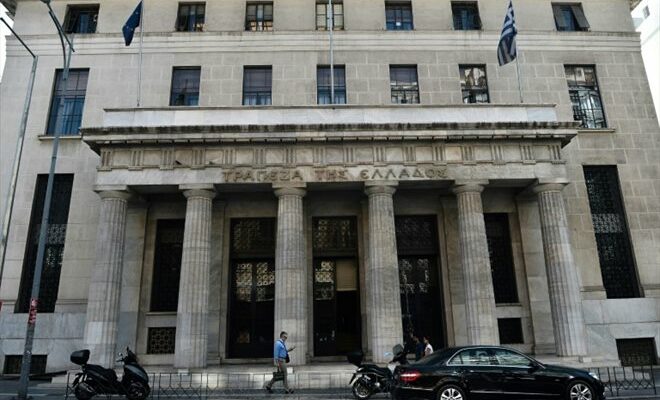Greek Prime Minister Kyriakos Mitsotakis, November 10, 2023 in Athens (AFP/Archives/Angelos Tzortzinis)
The financial rating agency Fitch on Friday raised Greece’s long-term sovereign debt rating from BB+ to BBB-, with a “stable” outlook, placing the country in the so-called “investment” category.
S&P Global Ratings had already removed Greece from the speculative category in October, for the first time since 2010 and the debt crisis.
Fitch expects the public debt/GDP ratio to “continue to decline sharply”, according to its press release published Friday, thanks to growth and “fiscal prudence”.
“We also believe that political risks are relatively low,” continues the rating agency.
She also compliments the efforts of the Mediterranean country “in terms of budgetary consolidation” and “tax reforms”.
For Greek Finance Minister Kostis Hatzidakis, Fitch’s decision constitutes an “important national success”, according to a reaction message on the social network X, formerly Twitter.
“This recovery paves the way for greater investment flows, improved financing conditions for the economy, growth and increased employment,” he added.
He welcomed that Fitch highlighted “the record decline in public debt of 65 percentage points of GDP, from 205% during the pandemic to 160.8% this year and 141.2% by to 2027”.
– “Proud” –
In September, the Canadian-based DBRS Morningstar agency also upgraded Greece’s credit rating to investment grade.
S&P followed suit in October.
“We are proud that our country’s achievements have been recognized. We are determined to continue our reform agenda, a path that attracts investment, creates jobs and achieves inclusive growth,” Prime Minister Kyriakos Mitsotakis said at the time.

The Bank of Greece in August 2019 in Thassaloniki (AFP/Archives/Sakis MITROLIDIS)
Re-elected for a new four-year term in June, the conservative leader is banking politically on Greece’s return to quality loans to restore its public finances next year.
During the economic crisis, Greece suffered a series of downgrades from rating agencies, which deprived it of access to international bond markets.
Greece has endured eight years of austerity under three successive international bailouts, worth a total of 289 billion euros ($306 billion), implemented in 2010, 2012 and 2015 to prevent the country collapses under the weight of a debt of some 300 billion euros.
Economic reforms demanded by Greece’s creditors, the EU and the IMF, have had a major impact, reducing gross domestic product (GDP) by a quarter in eight years and pushing the unemployment rate to more than 27 %. The third bailout ended in August 2018.
According to official data, the Greek economy grew by 5.6% in 2022.
Fitch, for its part, predicts 2.4% growth for 2023 and the next two years.
The institution noted on Friday that “the authorities are planning revenue-generating tax reforms in 2024 in order to raise an additional 600 million euros for social spending.”
“Combined with efforts to improve digitalization and reduce tax evasion, these measures could strengthen the tax revenue base and provide additional fiscal space for additional capital investments to stimulate growth,” detailed the agency.
© 2023 AFP
Did you like this article ? Share it with your friends using the buttons below.




